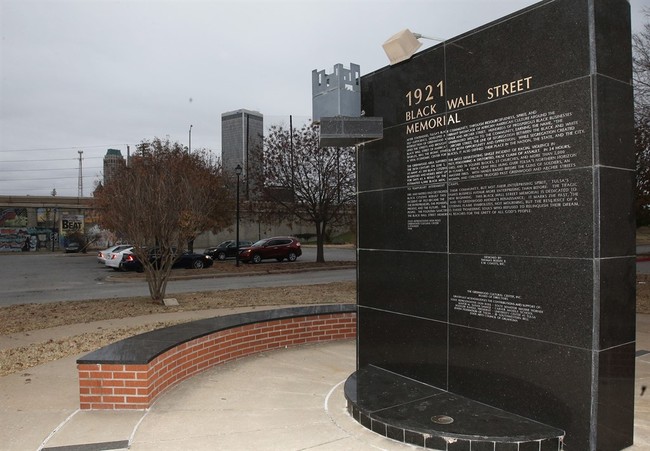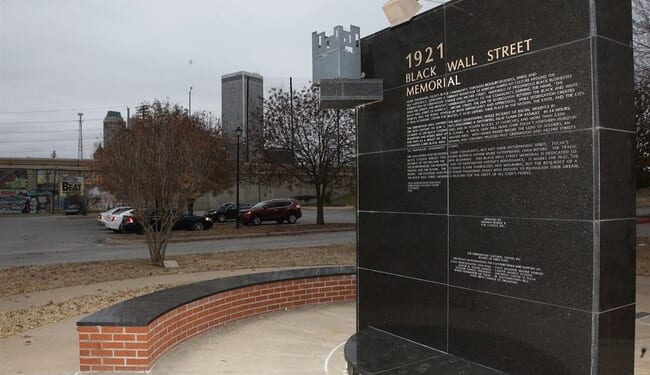
Viola Fletcher was 7 years old when the airplanes came. It was May 31, 1921, in Tulsa’s Greenwood neighborhood, a thriving Black enclave known as Black Wall Street. White mobs, fueled by envy and racial hatred, descended with guns and torches. They killed up to 300 people, torched more than 1,200 homes and businesses, and left a community in ruins.
Fletcher hid under a table as the world she knew burned around her. She carried those flames for the next 104 years, until her death Monday at age 111. Fletcher’s passing, announced by Tulsa Mayor Monroe Nichols, closes another chapter on one of America’s most brazen acts of domestic terrorism.
Viola Ford Fletcher, the oldest survivor of The Tulsa Race Massacre passed away. Let’s honor her memory by remembering her story pic.twitter.com/c8XkYXU72u
— Dr. Allison Wiltz (@queenie4rmnola) November 25, 2025
Nichols called her “Mother Fletcher,” a woman who “endured more than anyone should” yet devoted her final decades to forging a path forward. It’s a fitting tribute, but tributes alone won’t suffice. Fletcher’s life was a quiet indictment of a nation that too often prefers amnesia to atonement. Consider her testimony before Congress in 2021, delivered with the unflinching clarity of someone who had no choice but to remember. “I still see Black businesses being burned,” she said. “I still hear airplanes flying overhead. I hear the screams. I live through the massacre every day.”
Viola Ford Fletcher, oldest survivor of Tulsa Race Massacre, has died at age 111. She testified at a 2021 congressional hearing and recounted her experiences living through the Tulsa Race Massacre. pic.twitter.com/Mab7IhHXy0
— CSPAN (@cspan) November 24, 2025
Those words, spoken at 107, weren’t theater. They were the residue of trauma, etched into a survivor’s bones. She could still smell the smoke, see the bodies in the streets. And why? Because America buried the story, along with the victims. This wasn’t an isolated outburst.
Rest in power, Mother Fletcher.🕊🕊
At just seven years old, Viola “Mother” Fletcher watched her flourishing Black community in Tulsa be reduced to ashes — and she spent the next century refusing to let the world forget what was taken. Through her courage, her testimony, and her… pic.twitter.com/aAIG905e4m
— A’ja Smith (@AjaSmith_) November 24, 2025
Post-Civil War pogroms led by white Democrats scarred Wilmington, North Carolina, in 1898; Atlanta in 1906; Chicago in 1919. In each case, white Democrat perpetrators looted and murdered with impunity, their crimes whitewashed from textbooks and public memory. Greenwood was no different. No federal prosecutions followed.
Justice for those who endured didn’t materialize for decades. Fletcher, her brother Hughes Van Ellis — who died in 2023 at 102 — and fellow survivor Lessie Benningfield Randle filed suit in 2020, seeking justice through a 99-year property tax abatement for victims’ descendants.
Oklahoma’s Supreme Court dismissed it in 2023, a decision as tone-deaf as it was predictable. Even the gestures rang hollow. President Joe Biden’s 2021 visit to Tulsa, marking the centennial, offered solemn words: “We should know the good, the bad, everything. That’s what great nations do.” Admirable in intent, perhaps, but light on action, predictably.
Tulsa’s June announcement of a $105 million trust fund for massacre descendants is an overreach. Rather than money, they should instead give those descendants a chance for a better life by getting them into trade schools and sponsoring mentorship programs so the descendants can make a better black Wall Street without using tax dollars; so they can show their kids that hard work can give you a black Wall Street you can be proud of because you built it on your own.
SEE ALSO: Essex Files: Tulsa’s Race Massacre Fund Is Misguided – Let’s Fix What’s Broken Now
CNN Analyst Downplays Experience of Tulsa Massacre Victims
This isn’t about endless grievance or partisan point-scoring. It’s about the rule of law, personal responsibility, and the enduring American promise of equal justice. The founders envisioned a republic where property and life were sacred, not subject to mob whims or government neglect.
When Greenwood burned, so did that ideal. Conservatives, who rightly champion limited government and self-reliance, should lead the charge here: demand transparency in historical records, and ensure local communities, not distant bureaucrats, drive healing without federal overreach.
Fletcher outlived the attackers, the cover-ups, even the initial wave of denial. She testified not for vengeance, but for truth, lighting that path Nichols described. With her gone, Lessie Benningfield Randle, 110, stands as the last sentinel. Her voice must echo louder now. America has reckoned with Pearl Harbor, with 9/11. It’s time to do the same for Tulsa, not out of guilt, but grit. Because burying the past doesn’t erase it; it just ensures the ghosts keep rising. Fletcher’s life reminds us: Justice delayed is justice denied, but it’s never too late to make it right.
Editor’s Note: Do you enjoy RedState’s conservative reporting that takes on the radical left and woke media? Support our work so that we can continue to bring you the truth.
Join RedState VIP and use the promo code FIGHT to get 60% off your VIP membership!

















